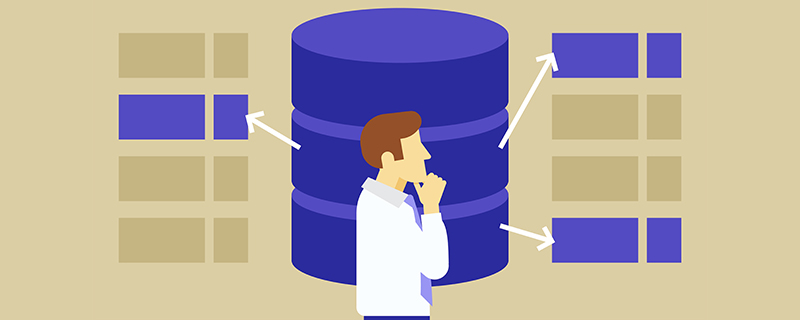脏读、幻读、不可重复读的区别:1、脏读就是指当一个事务正在访问数据,并且对数据进行了修改;2、不可重复读是指在一个事务内,多次读同一数据;3、幻读是指当事务不是独立执行时发生的一种现象。

【相关学习推荐:mysql教程】
脏读、幻读、不可重复读的区别:
1. 脏读 :脏读就是指当一个事务正在访问数据,并且对数据进行了修改,而这种修改还没有提交到数据库中,这时,另外一个事务也访问 这个数据,然后使用了这个数据。
2. 不可重复读 :是指在一个事务内,多次读同一数据。在这个事务还没有结束时,另外一个事务也访问该同一数据。那么,在第一个事务中的两 次读数据之间,由于第二个事务的修改,那么第一个事务两次读到的的数据可能是不一样的。这样就发生了在一个事务内两次读到的数据是不一样的,因此称为是不 可重复读。例如,一个编辑人员两次读取同一文档,但在两次读取之间,作者重写了该文档。当编辑人员第二次读取文档时,文档已更改。原始读取不可重复。如果 只有在作者全部完成编写后编辑人员才可以读取文档,则可以避免该问题。
3. 幻读 : 是指当事务不是独立执行时发生的一种现象,例如第一个事务对一个表中的数据进行了修改,这种修改涉及到表中的全部数据行。 同时,第二个事务也修改这个表中的数据,这种修改是向表中插入一行新数据。那么,以后就会发生操作第一个事务的用户发现表中还有没有修改的数据行,就好象 发生了幻觉一样。例如,一个编辑人员更改作者提交的文档,但当生产部门将其更改内容合并到该文档的主复本时,发现作者已将未编辑的新材料添加到该文档中。 如果在编辑人员和生产部门完成对原始文档的处理之前,任何人都不能将新材料添加到文档中,则可以避免该问题。
补充 : 基于元数据的 Spring 声明性事务 :
Isolation 属性一共支持五种事务设置,具体介绍如下:
DEFAULT 使用数据库设置的隔离级别 ( 默认 ) ,由 DBA 默认的设置来决定隔离级别 .
READ_UNCOMMITTED 会出现脏读、不可重复读、幻读 ( 隔离级别最低,并发性能高 )
READ_COMMITTED 会出现不可重复读、幻读问题(锁定正在读取的行)
REPEATABLE_READ 会出幻读(锁定所读取的所有行)
SERIALIZABLE 保证所有的情况不会发生(锁表)
不可重复读的重点是修改 :
同一事务,两次读取到的数据不一样。
幻读的重点在于新增或者删除
同样的条件 , 第 1 次和第 2 次读出来的记录数不一样
脏读:
强调的是第二个事务读到的不够新。
以上就是脏读、幻读、不可重复读的区别是什么的详细内容,更多请关注php中文网其它相关文章!

每个人都需要一台速度更快、更稳定的 PC。随着时间的推移,垃圾文件、旧注册表数据和不必要的后台进程会占用资源并降低性能。幸运的是,许多工具可以让 Windows 保持平稳运行。




Copyright 2014-2025 https://www.php.cn/ All Rights Reserved | php.cn | 湘ICP备2023035733号